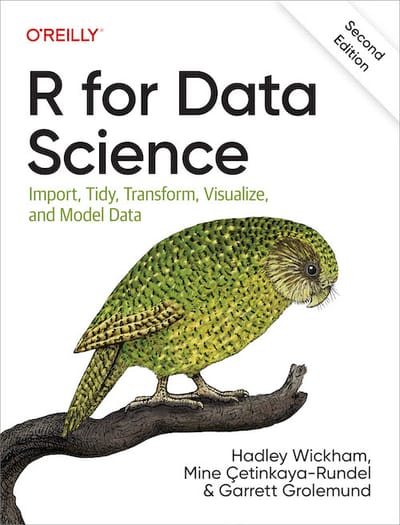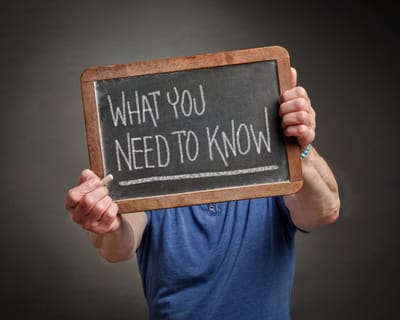Statistics in R

R for Data Science (2e) *Free*
Written by the creator of the Tidyverse R Universe, "R for Data Science (2e)" is a comprehensive, free online resource for learning how to do data science using R. This book covers all the essential skills: from getting data into R, transforming it into the right structure, to visualizing and exploring it. You'll master best practices in data wrangling, plotting, and even learn about the grammar of graphics, literate programming, and reproducible research—all to streamline your workflow and facilitate discovery. This freely accessible book is licensed under CC BY-NC-ND 3.0, and if you find it valuable, consider supporting the critically endangered kākāpō parrot, featured on the cover, by donating to Kākāpō Recovery.
Read More
Comprehensive Links and resources
This collaborative guide offers a comprehensive resource for working with R, RMarkdown, and Quarto, providing users with best practices, tutorials, and tips for data manipulation, visualization, and reproducibility. Developed by Gilad Feldman at the University of Hong Kong, it invites contributions from the community to enhance its content. The guide is packed with useful information on R packages, statistical methods, AI tools, and more, making it ideal for anyone looking to deepen their skills in R for data science or academic work.
Read More
R for Graduate Students
This free online book by Wendy Huynh, a PhD student in behavioral neuroscience, is a user-friendly guide for beginners in R programming. Starting as a series of assignments to teach a fellow graduate student, it quickly expanded into a comprehensive resource tailored to those in the sciences who want to learn R from scratch. With relatable examples and step-by-step explanations, this book is perfect for anyone struggling to find a practical, beginner-focused guide to R that is relevant to their field. Wendy’s passion for teaching shines through, offering readers an approachable path to mastering data management in R.
Read More
YaRrr! The Pirate’s Guide to R
Set sail on your R programming journey with "YaRrr! The Pirate’s Guide to R"—a humorous, step-by-step resource perfect for absolute beginners. This book breaks down R's complexities in an easy-to-understand way, using entertaining examples and playful explanations to keep you engaged. With a light-hearted tone, it guides you through everything from the basics of data manipulation to creating visualizations. The book is a few years old, but if you're overwhelmed by the R for Data Science book and looking for a fun and accessible way to start without taking the wind out of your sails, this guide is sure to help you navigate the seas of data science with a smile!
Read More
R Tutorials & Resources for nonlinear analyses
Tools and tutorials located in Github to help with recurrence quantification analysis (RQA), cross-recurrence quantification analysis (CRQA), and detrended fluctuation analysis (DFA).
Read More
Anova in R
This thread by @WeAreRLadies provides a practical and concise guide to performing ANOVA in R, addressing the most frequent questions clients ask about running linear models, hypothesis testing, and extracting means. The author covers key concepts like formula notation, the limitations of certain functions, and provides recommendations for handling different types of data, including balanced and unbalanced datasets. This resource is a great starting point for anyone looking to navigate ANOVA in R effectively.
Read More
Linear models and linear mixed effects models in R with linguistic applications
This tutorial by Bodo Winter provides a conceptual introduction to linear models and linear mixed-effects models, focusing on their application within R for linguistic data analysis. With practical examples and hands-on exercises, the guide is designed to quickly build your understanding of these powerful statistical tools. Whether or not you have a background in linguistics, this tutorial will help you start analyzing your data and understand key concepts such as variance explained, significance, and model coefficients. Dive in and boost your knowledge in just a couple of hours!
Read More